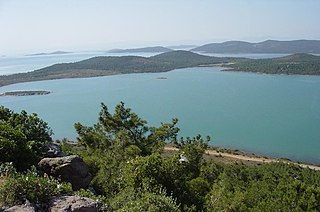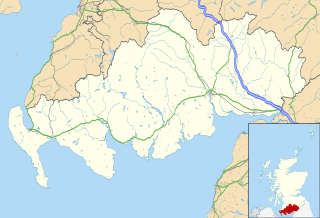
Fascism is a form of far-right, authoritarian ultranationalism characterized by dictatorial power, forcible suppression of opposition, and strong regimentation of society and the economy that rose to prominence in early 20th-century Europe. The first fascist movements emerged in Italy during World War I, before spreading to other European countries. Opposed to anarchism, democracy, liberalism, and Marxism, fascism is placed on the far right-wing within the traditional left–right spectrum.

Italy, officially the Italian Republic or Republic of Italy, is a country consisting of a peninsula delimited by the Alps and several islands surrounding it, whose territory largely coincides with the homonymous geographical region. Italy is located in the middle of the Mediterranean Sea, in Southern Europe; it is also considered part of Western Europe. A unitary parliamentary republic with Rome as its capital and largest city, the country covers a total area of 301,230 km2 (116,310 sq mi) and shares land borders with France, Switzerland, Austria, Slovenia, as well as the enclaved microstates of Vatican City and San Marino. Italy has a territorial exclave in Switzerland (Campione. With around 60 million inhabitants, Italy is the third-most populous member state of the European Union.
Year 1347 (MCCCXLVII) was a common year starting on Monday of the Julian calendar, and a common year starting on Sunday of the Proleptic Gregorian calendar.

The Axis powers, originally called the Rome–Berlin Axis, was a military coalition that initiated World War II and fought against the Allies. Its principal members were Nazi Germany, the Kingdom of Italy, and the Empire of Japan. The Axis were united in their opposition to the Allies, but otherwise lacked comparable coordination and ideological cohesion.

Cape Gelidonya, formerly Kilidonia or Killidonia is a cape or headland on the Teke Peninsula in the chain of Taurus Mountains, located on the southern coast of Anatolia between the Gulf of Antalya and the Bay of Finike.

Saint Oda of Scotland was a woman, supposedly of Scottish origin, who became a holy recluse in the Netherlands. Her feast day is 23 October.

Keyne was a 5th-century holy woman and hermitess who was said to have traveled widely through what is now South Wales and Cornwall.

Olivia of Palermo, Palermo, 448 – Tunis, 10 June 463, while according to another tradition she is supposed to have lived in the late 9th century AD during the muslim emirate of Sicily is a Christian virgin-martyr who was venerated as a local patron saint of Palermo, Sicily in the Middle Ages, as well as in the Sicilian towns of Monte San Giuliano, Termini Imerese, Alcamo, Pettineo and Cefalù.

Ayvalık Islands, are the group of islands around Ayvalık district of Turkey in Balıkesir Province in the Northeastern Aegean Sea. There are 22 islands and numerous rocks in the group, with Cunda Island, now a peninsula, being the largest. People live only on Cunda and Lale Islands. Cunda and Lale islands are linked to Ayvalık on the mainland, by a causeway enabling transportation by car. Cunda also has a ferry link from the main town, Alibey, to Ayvalık during the summer.

The tawny-crowned honeyeater is a passerine bird native to southern Australia.
Compsolechia is a genus of moths in the family Gelechiidae.
The Life of Orgyan Chokyi is the namtar of Orgyan Chokyi, a Tibetan Buddhist nun who lived in Dolpo, a region in northwestern Nepal, from 1675 until 1729. It is the oldest of only three extant pre-modern autobiographies by a Tibetan woman.

Benito Amilcare Andrea Mussolini was an Italian politician and journalist who founded and led the National Fascist Party. He was Prime Minister of Italy from the March on Rome in 1922 until his deposition in 1943, and "Duce" of Italian Fascism from the establishment of the Italian Fasces of Combat in 1919 until his execution in 1945 by Italian partisans. As dictator of Italy and principal founder of fascism, Mussolini inspired and supported the international spread of fascist movements during the inter-war period.
Wivina (1103–1168) was a Benedictine abbess. Born in Oisy, France, she refused all offers of marriage, becoming, aged 23, a hermitess at Groot-Bijgaarden, near Brussels. She later accepted land from Count Godfrey of Brabant and built a convent and served as its first abbess.

Catocala chelidonia is a moth of the family Erebidae. It is found from Arizona and Utah to California.

The Erebinae are a subfamily of moths in the family Erebidae erected by William Elford Leach in 1815. Erebine moths are found on all continents except Antarctica, but reach their greatest diversity in the tropics. While the exact number of species belonging to the Erebinae is not known, the subfamily is estimated to include around 10,000 species. Some well-known Erebinae include underwing moths (Catocala) and witch moths (Thermesiini). Many of the species in the subfamily have medium to large wingspans, up to nearly 30 cm in the white witch moth, which has the widest wingspan of all Lepidoptera. Erebine caterpillars feed on a broad range of plants; many species feed on grasses and legumes, and a few are pests of castor bean, sugarcane, rice, as well as pistachios and blackberries.

Kirkinner is a village in the Machars, in the historical county of Wigtownshire in Dumfries and Galloway, Scotland. About 3 miles (4.8 km) southwest of Wigtown, it is bounded on the east by the bay of Wigtown, along which it extends for about three miles, and on the north by the river Bladnoch.
Kurtis R. Schaeffer is Professor of Tibetan and Buddhist Studies at the University of Virginia and Chair of the Religious Studies department. His primary topics of research are the history of the regions of Nepal, India, Tibet, and China, with a focus on the forms of Buddhism present in these areas, most especially Tibetan Buddhism. Some specific issues he has been concentrated on include Indo-Tibetan poetry, the development of classical learning and printed literature in Tibetan cultural regions, and the history of women, saints, and Dalai Lamas in Tibet. For his work, Schaeffer has received Fulbright, Ryskamp, and Whiting fellowships.
Wendreda, also known as Wendreth, was an Anglo-Saxon nun, healer, and saint, perhaps of the 7th century. She was uncertainly reported as a daughter of King Anna of East Anglia, a Christian king, which would make her a sister of Etheldreda, abbess of Ely, Sexburgha, abbess of Minster-in-Sheppey, and Ethelburga, abbess of Faremoutiers, who are all better-known saints, and a half-sister of Sæthryth, also an abbess of Faremoutiers.
Moron Hydor was a port town of ancient Lycia, located 30 stadia from Posidarisus, and 50 stadia from Cape Hieron and Chelidonia.













